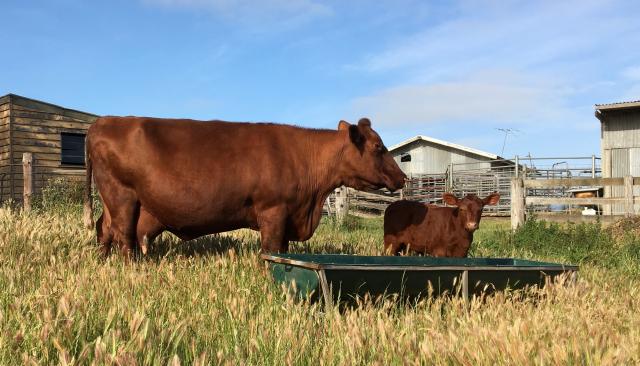By Catie Gressier
Most of Oliver McLeary’s belongings went up in smoke while he moved the 100 odd cattle of Yongerellen Red Poll Stud to safety.
The 18-year-old farm manager had to work quickly as a raging bushfire swept through Western Australia’s Wheatbelt on 6 February this year.
It’s been a long, dry summer here in the west — the hottest on record — and stubble from the season’s bumper harvest provided plenty of fuel.
The conditions were every farmer and firie’s worst nightmare: as the temperature hit 42.5 degrees, wind gusts of over 70km/hour fanned the flames.
Between Corrigin and Quairading, right in the fire’s path, Murray Williams has bred Red Poll cattle since 1975. Yongerellen Red Poll Stud is well known nationally, with Murray a highly respected breeder, cattle judge, and long-term member of the Australian Red Poll Cattle Breeders Inc. (He was also reigning champion of the Penola Show’s Bloke’s Chocolate Cake Competition for a time, but that’s another story). Murray was in York that terrible Sunday, recovering from knee surgery at his sister’s.
His young farm manager’s actions herald a new generation as passionate and resilient as those who have come before. Despite the searing heat, engulfing smoke and roar of the relentless flames, Oliver managed to calmly move the various mobs to safer paddocks with minimal vegetation. His quick thinking saved the whole herd, which was an extraordinary feat given most of Murray’s property was badly burned, with several sheds, and the house that Oliver was living in, destroyed.
Bushfire events, along with floods and disease outbreaks, are a perennial threat for all farmers. But they are particularly concerning in the case of rare breeds, whose genetics are a precious, irreplaceable resource. In Murray’s case, his bloodlines reflect decades of careful selection: the excellent udders and teats characteristic of the old English bloodlines ensure exceptional milking ability, which he’s paired with the growth and muscling traits of American and New Zealand lines. These unique genetics are, of course, embodied in much-loved animals, whose loss would have been hard to bear.
Over 45 000 hectares were damaged in last month’s Wheatbelt fires, with thousands of sheep killed, and a heavy toll on the community, wildlife, vegetation and property. While the impacts of this disaster will be felt for decades to come, it is nonetheless inspiring to see members of the next generation demonstrating such bravery and level-headedness, along with a profound commitment to the animals in their care.







